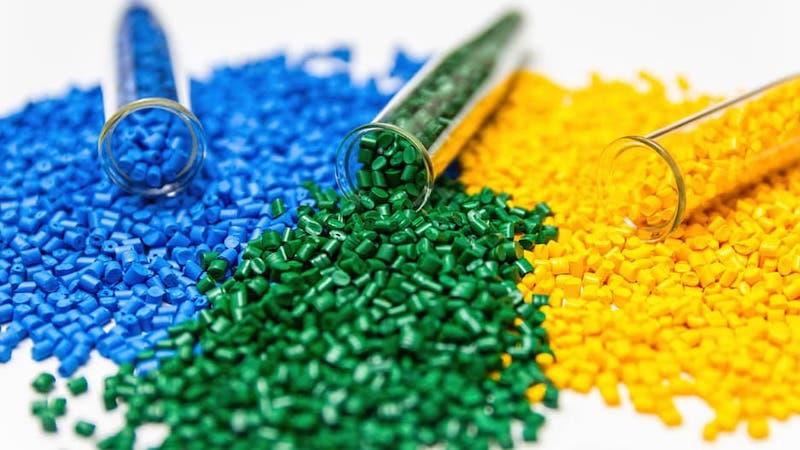(MENAFN- Robotics & Automation News) Material Selection and Process Optimization: The Key to Successful Custom Injection Molding Services
July 31, 2023 by david edwards leave a comment
Discover the crucial role of material selection and process optimization in custom injection molding services. Explore the impact of plastic resins on injection molding and learn about key considerations to achieve optimal results.
custom injection molding services have transformed the landscape of the manufacturing industry, providing a revolutionary means of producing intricate plastic parts in large quantities.
The success of injection molding projects relies heavily on two fundamental factors meticulous material selection and meticulous process optimization.
Carefully choosing the appropriate plastic resins and implementing efficient processes are pivotal in determining the ultimate quality, performance, and cost-effectiveness of the end products. Material selection entails a comprehensive evaluation of multiple considerations, including compatibility with the injection molding process, desired mechanical properties, environmental factors, and cost implications.
What is Custom Injection Molding?
Custom injection molding stands out as a prominent manufacturing process wherein the molten plastic material is injected into a meticulously designed mold to yield plastic parts of the desired shape and specifications.
This adaptable technique enables the production of intricate, accurate, and uniform components with remarkable efficiency and scalability. With its versatility, custom injection molding empowers manufacturers to create parts in diverse sizes, shapes, and materials, catering to a wide array of industries, including automotive, medical, consumer electronics, and beyond.
Material Selection: A Cornerstone of Injection Molding
Choosing the right materials is crucial for achieving the desired product characteristics and performance in injection molding. Consider the following points during the material selection process:
Compatibility with Injection Molding
Opt for plastic resins that are specifically formulated for injection molding to ensure smooth and efficient production processes.
Consider critical properties such as melt flow index (MFI), viscosity, and thermal stability when selecting materials.
Mechanical Properties
Evaluate the mechanical properties required for the final product, including tensile strength, impact resistance, and flexibility.
Select plastic resins that possess the necessary attributes for the intended application.
Environmental Factors
Assess the environmental conditions in which the product will be used to determine the appropriate material's resistance to temperature, chemicals, and UV radiation.
Take into account factors such as moisture absorption and degradation when choosing plastic resins.
Cost Considerations
Evaluate the cost-effectiveness of different plastic resins, considering factors such as material price, recyclability, and production efficiency.
Striking a balance between performance requirements and cost limitations is essential.
Process Optimization: Unlocking Efficiency and Quality
Once the appropriate plastic resins are selected, process optimization becomes paramount to achieving efficient and high-quality injection molding. Consider the following aspects:
Tooling Design and Fabrication
Collaborate with experienced tooling designers to ensure optimal mold design, gate location, and cooling channel placement.
Leverage advanced techniques such as computer-aided design (CAD) and simulation software to optimize the mold design process.
Injection Molding Parameters
Fine-tune injection molding parameters, including temperature, pressure, and cycle time, to achieve consistent part quality and minimize defects.
Conduct comprehensive testing and analysis to identify the optimal processing conditions for the selected plastic resins.
Quality Control Measures
Implement stringent quality control procedures to detect and address deviations or defects during the injection molding process.
Employ advanced inspection techniques such as inline monitoring and automated visual inspection systems to ensure product consistency.
What are the Pros and Cons of Employing Custom Tooling in Injection Molding?
Advantages of Custom Tooling: Precision and Consistency: Custom tooling ensures precise replication of complex part designs, resulting in consistent and high-quality output. Cost-effectiveness for Large Production Runs: Once custom tooling is created, it enables efficient and rapid production of large quantities of parts, reducing costs per unit. Design Flexibility: Custom tooling offers the flexibility to create parts with intricate geometries and unique features, allowing for innovation and customization. Faster Production Time: With custom tooling, production cycles are accelerated, minimizing time-to-market and meeting tight project deadlines.
Drawbacks of Custom Tooling: Significant Upfront Costs: The development of custom tooling often requires a substantial initial investment, particularly for intricate components. This financial commitment can present challenges for small-scale productions or projects with short product lifecycles. Extended Lead Time for Tooling Production: The process of designing and fabricating custom tooling can be time-consuming, potentially causing delays in production and time-to-market. Constrained Design Flexibility: Once custom tooling is implemented, making design alterations becomes more complex and expensive. This limitation emphasizes the importance of meticulous planning and consideration during the initial tooling design phase.
By carefully evaluating these advantages and disadvantages, manufacturers can make well-informed decisions regarding the integration of custom tooling within their injection molding processes.
Superior Products
Material selection and process optimization stand as the pillars of successful custom injection molding services. By meticulously evaluating the properties of plastic resins and aligning them with the precise demands of the target applications, manufacturers can guarantee the manufacture of superior, long-lasting, and cost-efficient products.
The continuous advancement of post-molding processes, such as surface treatments, assembly, and packaging, further contributes to delivering superior results.
By embracing the importance of material selection and process optimization, manufacturers can unlock the full potential of custom injection molding technology, meet the diverse needs of their customers, and drive innovation in the industry.
FAQs
What is the impact of material selection on the outcome of custom injection molding?
Material selection holds immense significance in custom injection molding as it exerts direct influence over the characteristics, performance, and cost-effectiveness of the end product.
By carefully choosing the appropriate plastic resins, manufacturers ensure compatibility with the injection molding process while meeting the mechanical, environmental, and cost requirements specific to the intended application.
What are the benefits of process optimization in custom injection molding?
Process optimization is vital to achieving efficiency and high-quality results in custom injection molding. Optimized tooling design, fine-tuned injection molding parameters, and stringent quality control measures contribute to consistent part quality, minimal defects, and increased production efficiency.


















Comments
No comment